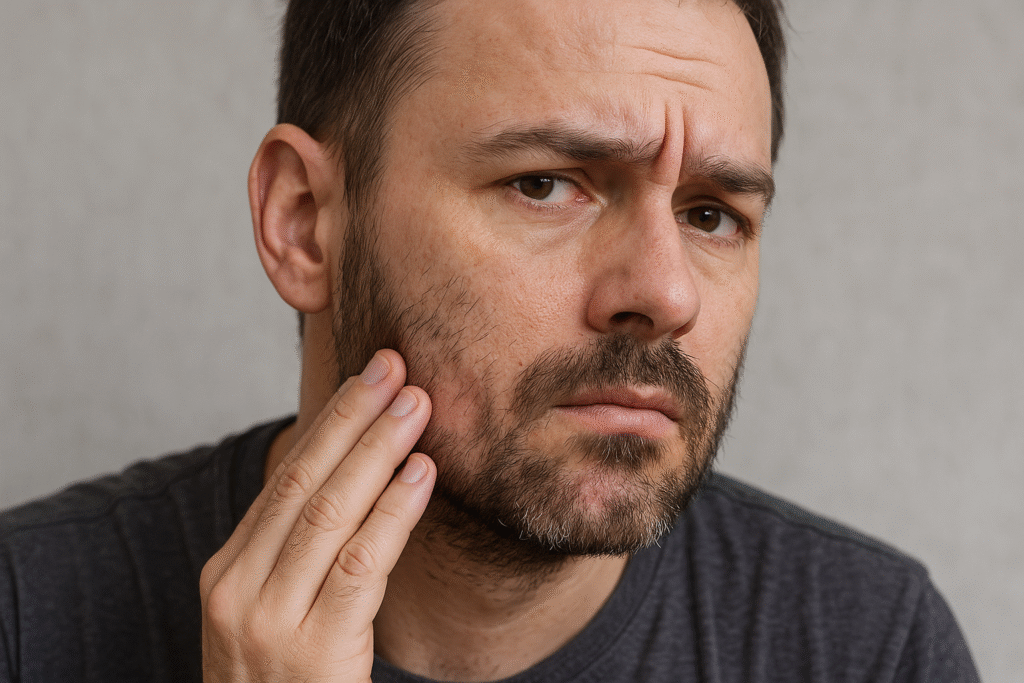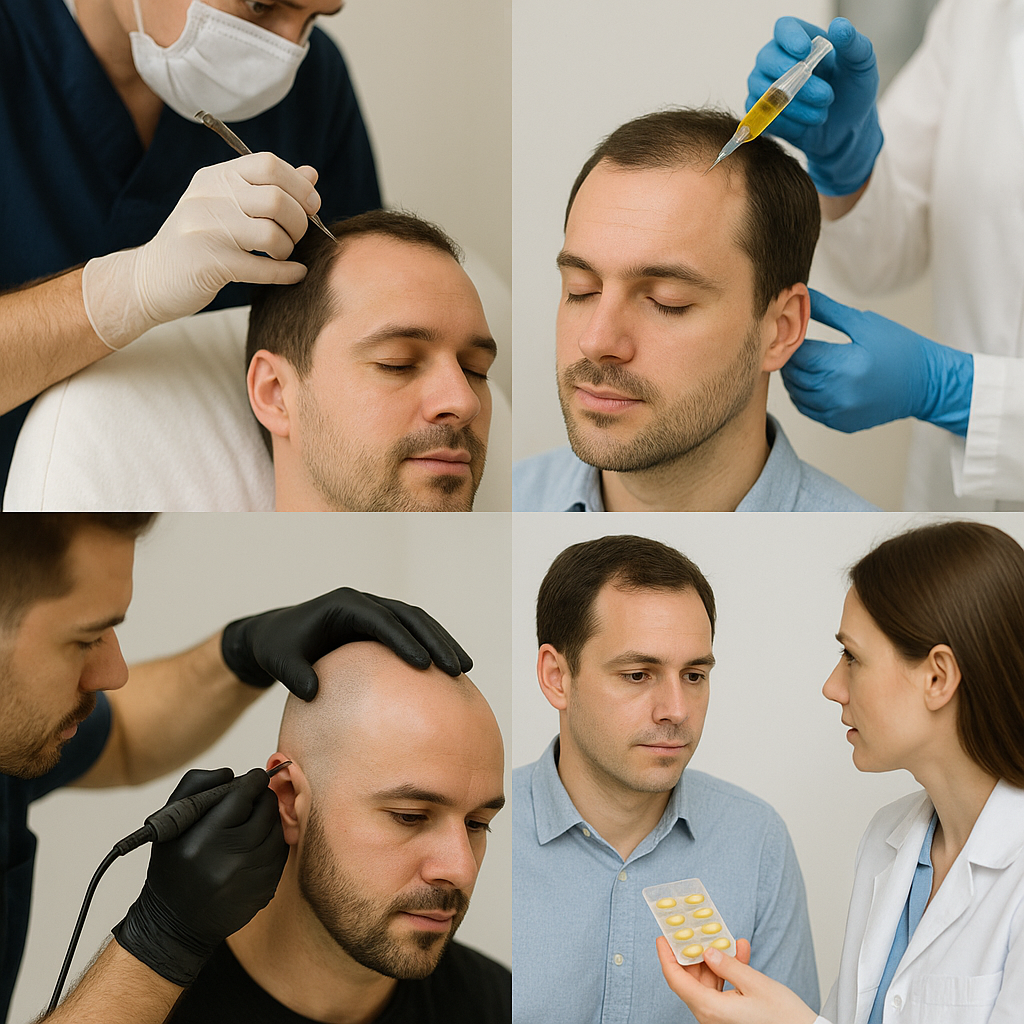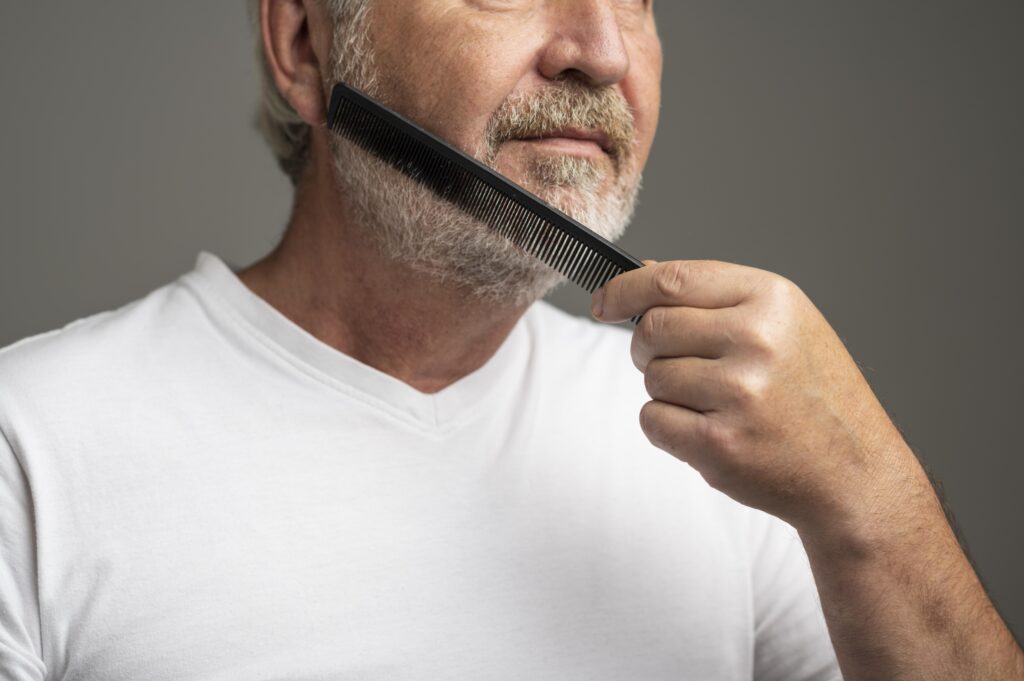Noticing bald patches in your beard and wondering what’s causing it? Can Alopecia Barbae Be Treated? focuses on reversing patchy beard hair loss caused by an autoimmune response.
This condition can be distressing, but options like corticosteroid injections, minoxidil, and natural therapies offer real hope.

Effective alopecia barbae treatment can help stimulate regrowth, reduce inflammation, and restore beard confidence.
With expert guidance and personalized care, you can take control of your beard health and explore proven solutions that work.
Can Alopecia Barbae Be Treated?
Alopecia barbae is a subtype of alopecia areata, an autoimmune condition where the body mistakenly attacks its own hair follicles. It presents as small, round, hairless patches on the beard area.
In some cases, these patches may merge, leading to larger areas of hair loss. Triggers include stress, genetics, autoimmune disorders, and hormonal imbalances.
Treatment Options for Alopecia Barbae
1. Platelet-Rich Plasma (PRP) Therapy
PRP involves drawing a patient’s blood, processing it to concentrate growth factors, and injecting it into the beard area. This stimulates follicular regeneration and improves hair density over time.
Benefits:
- Minimally invasive
- Natural healing mechanism
- Requires no downtime
2. Topical and Oral Medications
Commonly prescribed medications include:
- Topical corticosteroids: Reduce inflammation at the follicle site
- Minoxidil (non-surgical option): Encourages regrowth in patchy areas
- Oral immunosuppressants: Sometimes used in more resistant cases
3. Microneedling with Growth Serums
Microneedling promotes collagen production and enhances absorption of topical serums. It may improve regrowth when combined with PRP or other treatments.
4. Follicular Unit Extraction (FUE)
For patients with stable alopecia barbae, FUE hair transplantation is a viable option. Individual hair follicles are harvested from a donor site (usually the back of the scalp) and implanted into the beard region.
Procedure Steps:
- Local anesthesia
- Extraction of donor follicles
- Implantation in beard patches
- Recovery within 5–7 days

Who Is a Good Candidate?
- Individuals with patchy beard loss due to alopecia barbae
- Patients whose condition has stabilized
- Men looking for long-term improvement
What to Expect After Treatment
Results vary depending on the treatment chosen. PRP and FUE typically require multiple sessions for noticeable improvement. Mild side effects like redness, swelling, or tenderness may occur but usually subside quickly.
Treatment Cost in Islamabad
Pricing varies based on the procedure. Here’s a general breakdown:
- PRP sessions: PKR 10,000 – PKR 20,000 per session
- FUE beard transplant: PKR 80,000 – PKR 180,000 (based on graft count)
- Microneedling and medication costs: Vary by prescription and frequency
Contact Dr. Rana Irfan’s clinic directly for a personalized quote.

Dr. Rana Irfan: Islamabad’s Trusted Hair Restoration Expert
Dr. Rana Irfan is one of the few ABHRS– and ISHRS-certified practitioners in Pakistan. He combines global standards with personalized care to deliver safe, effective beard restoration solutions. His clinic in Islamabad caters to both local and international patients, making it a trusted destination for medical hair tourism.
Links Suggestions:
FAQ Section
Can alopecia barbae be reversed?
Yes, in many cases, alopecia barbae can be managed or reversed using treatments like PRP, medications, or hair transplantation. Results depend on the individual’s condition and consistency of care.
What is the most effective treatment for alopecia barbae?
No one-size-fits-all solution exists. However, PRP therapy and FUE hair transplant have shown promising results in suitable candidates.
Is alopecia barbae contagious or permanent?
Alopecia barbae is not contagious. It may resolve on its own or persist, depending on the cause and treatment plan.
Can stress cause alopecia barbae?
Yes, psychological stress is a known trigger that may initiate or worsen autoimmune reactions leading to alopecia barbae.
